
“Do you remember how this place was before?”
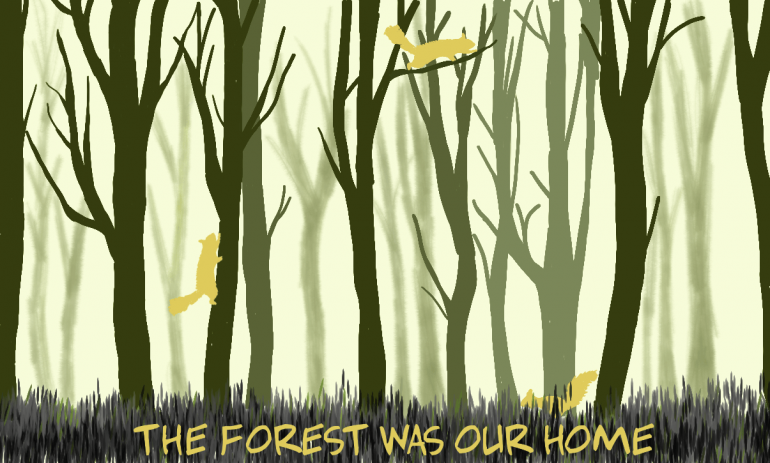
“The forest was our home.”

“They didn’t arrive by chance...”
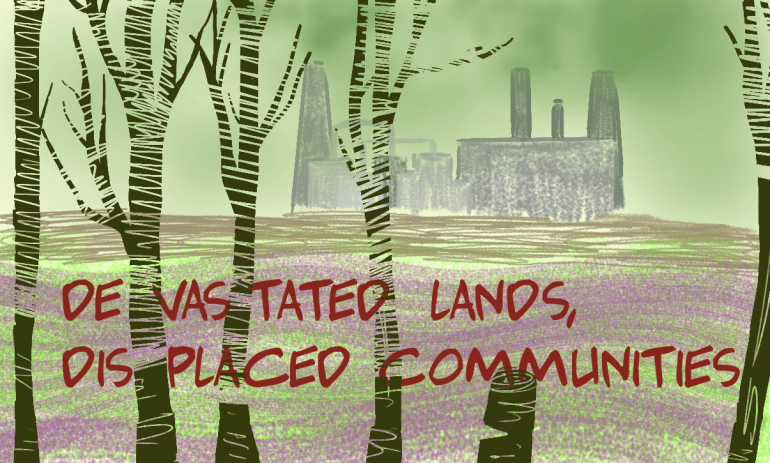
“Devasted lands, displaced communities.”
Although natural resource extractivism is a generalised practice, its activity is heavily concentrated in regions historically perceived as "colonisable", where the Hegemonic "Official" State (which imposes and violates the collective governance of self-organised communities) and transnational corporations profit from the dispossession and destruction of territories and communities. This neo-liberal colonisation is deeply racist, classist, and sexist.
The resistance and self-determination of these communities persists and, on many occasions, they organise themselves in inter- and intra-regional movements and networks.
SurSiendo, an organisation based in Chiapas (southern Mexico), among other initiatives, shares valuable reflections on the intersections between technologies, territory and capitalism.

“Well, actually, it isn’t a matter of black or white.”
Capitalism is complex: it’s not an obvious enemy. All the contrary, it’s shiny, attractive, offers us loads of commodities that compensate a progressive precarisation.
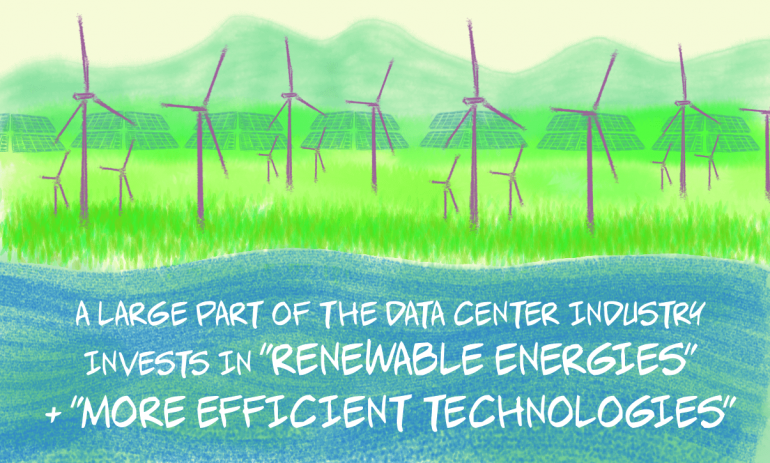
“A large part of the data center industry invests in renewable energies and more efficient technologies”
“Washing”, term that refers to “creating a good appearance”, is the old trick in transational corporations’ sleeves. Since they have loads of resources and capital, they can invest in “green efficient technologies” and, most of all, sell an environmentally responsible discourse (“greenwashing”).
Small alternative providers face difficulties when attempting to transition and/or access these options. So, when it comes to comparing, when just looking at energy resource consumption, a commercial provider can be more efficient.
How can we help these alternative providers? How can we find our own comprehensive ways of re-thinking/re-creating our relationship and use of natural resources?
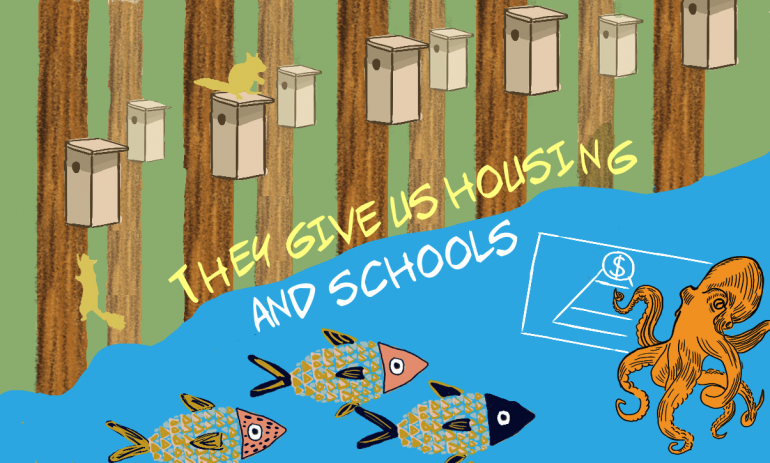
“They give us housing and schools”
Corporations increasingly replace the state itself. One of their main seduction strategies is to offer social goods wrapped in a language that, at times, manages to surprisingly mimic community and social movements.
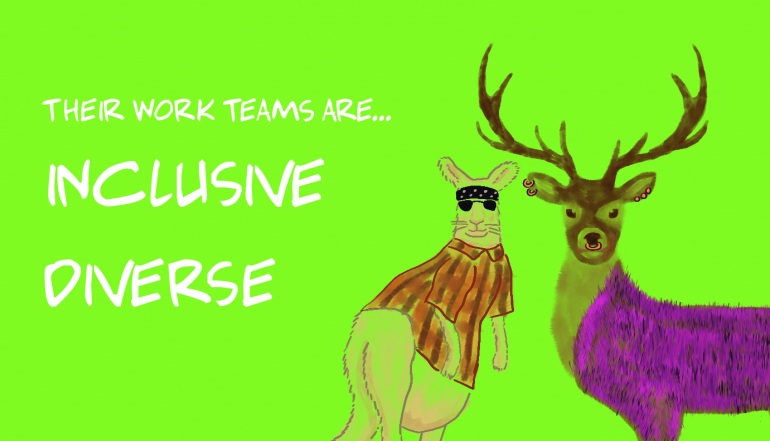
“Their work teams are inclusive and diverse”
And, although there is still a lot of gender identity and sexual orientation discrimination in the digital technology work field, many corporations comply with "the gender and diversity quota", assigning some women and gender-fluid workers high positions, subscribing to LGBTIQ+ causes and including the "rainbow" in their communication campaigns.
Many queer people that work in technology find more job stability in corporations. Unfortunately, cooperatives and alternative initiatives can lead to precariousness that particularly impacts people who are socially discriminated.

“Yeah ... but, they’re monopolizing everything!” but, they’re monopolizing everything!”
Among the smoke and flaring lights of capitalism, remember that centralisation and monopoly in general, regardless of the "side", is problematic.

“Doesn’t it seem a bit...suspicious?”
A healthy degree of suspicion, a critical and awake gaze, is key in increasingly twisted and complex societies. In an era of post-truth, with endless stimuli and content that influences our ways of feeling, believing and even perceiving reality, we need to create collective systems that filter reliable information and allow us to understand contexts and situations in order to make informed decisions instead of polarising ourselves between extreme cynicism or paranoid conspiracies.

- “Well, all of this is complicated...”
- “Yeah! My head hurts!”
Precisely because it isn’t an easy topic, we don’t intend to “solve” anything in a conversation. We take it one step at a time. It’s vital to maintain an open ongoing exchange about thse issues. Also take breaks and play!
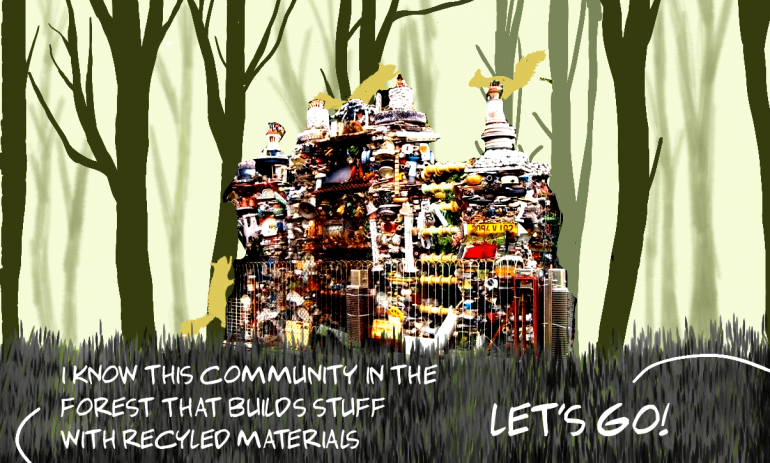
- “I know this community in the forest that builds stuff with recycled
materials.”
- “Let’s go!”
There are many experiences of technological autonomy, transition-slow movement-permaculture-related, based on a circular economy and an understanding of technologies as shared commons. They reduce rampant capitalist consumption, recycle materials and products, create exchange and interdependence networks.
In future editions of this web comic, we will learn more about these initiatives and we will connect with GISWatch and its upcoming publication on technologies, the environment and sustainability, with particular emphasis on narratives from the global South.

Follow these doodles at genderit.org. Poetic license: share under the moon. Created by Nadège.
Follow these doodles in genderit.org. All contents under poetic license “share under the moon”. Created by Nadège.
- 4797 views






Add new comment